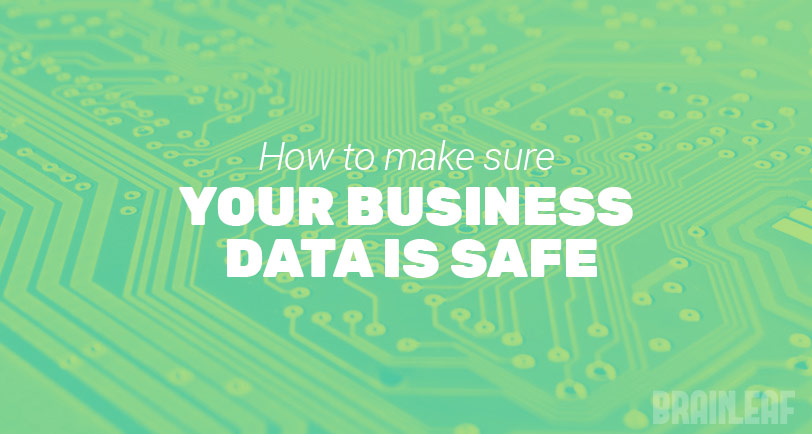
From our guest author Amelia Demott!
Hackers are getting smarter, and so are customers.
They understand the threats that may affect their personal information, and they’re becoming more discerning about who they’ll trust with that information. If you can’t offer them the highest level of security, they’ll pass you over in favor of a business with better safety standards. How long has it been since you’ve updated the measures you use to protect your business data?
Upgrade or Update When Necessary
New computers are more than just fun gadgets – they could play an important role in the security of your business data. After a while, old hardware won’t be able to handle new software. When things begin to outpace each other, it’s time to get new computers in your office. When you have those new computers, it’s important to install all required updates as often as they come up. It may be inconvenient to stop what you’re doing in order to allow your antivirus to update, but it’s far more inconvenient to actually obtain a virus.
Use a Proxy
Safety begins with the way you connect to the internet. Open or unsecured connection leaves everyone open to vulnerabilities. If anyone can access your connection, anyone can use that connection maliciously. This leaves you open to hackers and malicious software programs that are capable of infiltrating your connection to intercept your data. If you don’t have one already, consider using a proxy service to mask your connection. When hackers don’t understand who you are or where you’re coming from, it’s much more difficult for them to attack you.
Manage Your Backups
Some disasters cannot be avoided. A giant storm that causes a flood or a massive power surge can damage your equipment. When this happens, you’ll need to rely on your backups to help you continue your business. How current are your backups? Make sure you’re refreshing them on a regular basis. Delete the old things you won’t need anymore to make room for the new things you will. Keep backups safe and self-contained. Think of them like your safety deposit box.
Have a Clear Social Media Policy
Your employees can be a threat to your data safety, whether or not they realize it. Employees may inadvertently respond to a public social media comment with a little too much information about your customers. They may be excited about a competitive move the business is getting ready to make, and share it with the world on Twitter. Anyone can read those things. Train your employees about what they should and should not do when representing your business on social media. You’ll be able to avoid accidental breaches.
Don’t Collect More Than You Need
One of the easiest ways to keep track of your data is to avoid collecting too much of it. Do you really need to retain everything you’ve retained? Don’t save credit card or bank account numbers for your customers or clients, and disable the “autofill” setting on your online forms. For data, you do need to retain, put a time limit on it. If someone hasn’t made a transaction with you within a specified window of time, purge their sensitive data from your system. If you ever do get hit with an attack, damage control will be much easier when there’s less information at stake.
What happens if you have a breach?
If you can’t avoid a data breach, at least have a disaster recovery plan in place. Make sure you notify your customers as soon as possible and take immediate action to prevent damage worsening while the situation is being resolved. In a perfect world, that would never happen. In the world we live in, there’s no such thing as being too safe when it comes to your valued customers.

Amelia Demott is a passionate writer and self-proclaimed Internet addict. Having experience in business and IT administration, she likes to write about technology and self-development topics. This article was written in partnership with bizdb.co.nz.







